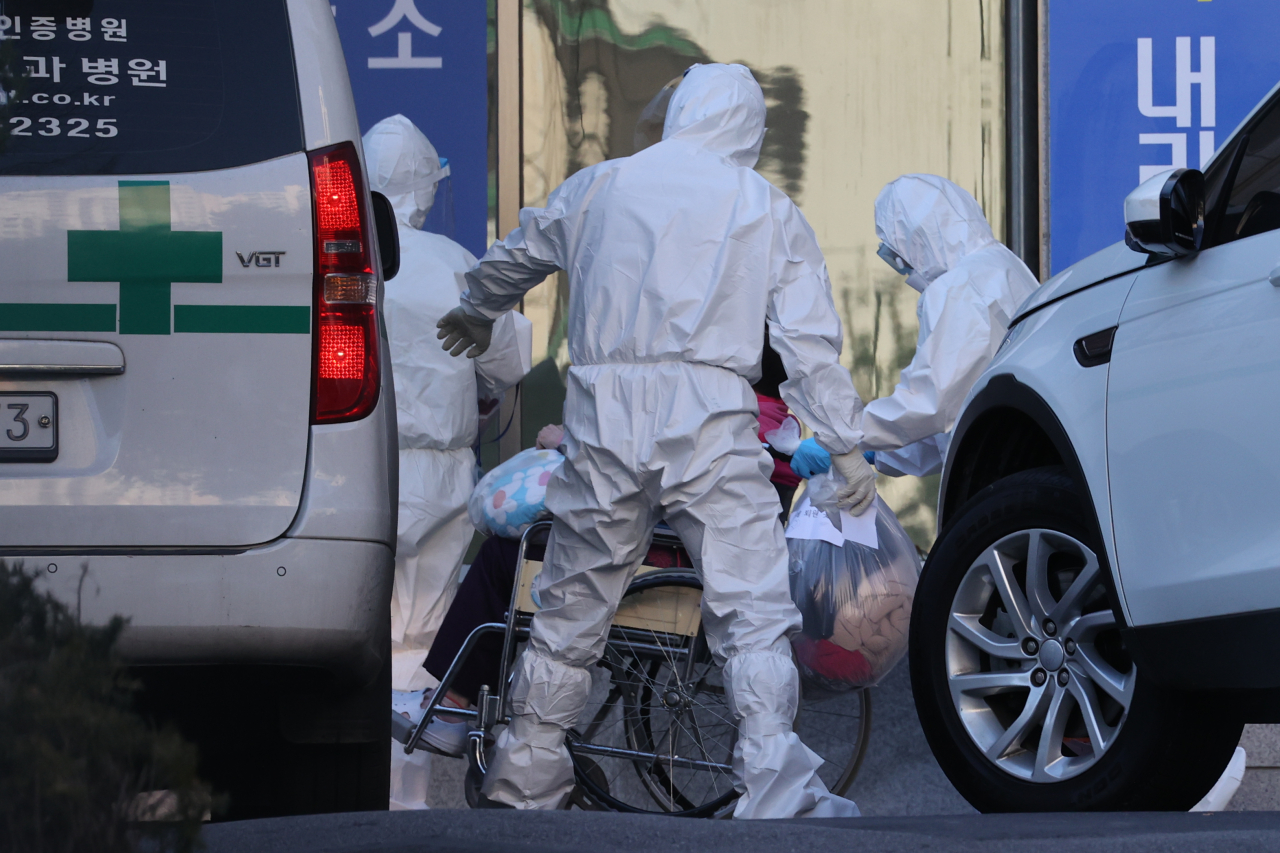Could he have been saved? Questions ensue in death of 6-year-old
By Kim ArinPublished : Dec. 13, 2021 - 18:10

South Korea’s second known child to die of COVID-19 had a chronic health condition, and he was considered to be at risk. He had been sick for about a week before he was officially diagnosed on Dec. 2. And yet he was not immediately given a bed at a hospital, instead isolating at home for two days until he was taken to the emergency room.
When he got to the ER on Dec. 4, he had breathing difficulties and a fever that wouldn’t go down. He was placed on a respirator immediately in an isolation ward. Despite showing warning signs of severe COVID-19, he could not be admitted for intensive care.
The following day on Dec. 5, his guardians were asked to give their consent for a do-not-resuscitate order -- a notice given when a patient is unlikely to survive. He died at 12:26 a.m. on Dec. 6, less than two weeks after he was first brought to a hospital. The immediate cause of death was given as acute respiratory distress syndrome, or breathing failure.
A government official in charge of COVID-19 bed assignment said over the phone that finding critical care beds for children is more difficult. “Patients requiring hospitalization are increasing rapidly, and it’s hard to find them a bed immediately,” she said. “For children, open beds are even harder to come by.”
“We’re trying to arrange beds for patients as promptly as possible, but you see how it can be difficult, given the situation,” she said. Asked to elaborate, she said that beds have been running short for a while.
Although official records read that his guardians gave their consent for home isolation, it’s unclear whether they understood the risk of the 6-year-old falling very sick suddenly, which is characteristic of COVID-19, according to a medical expert who wished to be quoted anonymously.
“He would have been admitted under normal circumstances. The surge cost him a chance at timely treatment,” he said. Prior to the current surge, patients could opt to have their children admitted to a hospital even if they were only minimally, or even asymptomatically, ill.
Pediatric infectious disease specialist Dr. Eun Byung-wook of Nowon Eulji University Hospital in northern Seoul said that it’s very rare for children to get seriously sick from COVID-19. But for children who are clinically vulnerable and at once too young to be vaccinated, allowing them to recover in a hospital setting “would, of course, be safer,” he said. In Korea, a child must be 12 or older to be eligible for vaccination.
Dr. Eom Joong-sik, an infectious disease specialist at Gachon University Medical Center in Incheon, said that given the present surge in patients, a preemptive admission would not have been a viable option.
“Unfortunately this is where we are,” he said. He added that cases of patients dying before ever getting the care they need were becoming a common sight.
Officially, the 6-year-old is documented as having died in hospital care, which is partly true.
The Korea Disease Control and Prevention Agency, in announcing the death in a closed-door briefing at around 2 p.m. on Dec. 7, said the child had died while receiving hospital treatment -- without mentioning that he was initially prescribed at-home care.
In a phone call at around 6 p.m. the same day, an agency official said it was not known at the time of the briefing that the child had been in home care. “Such information is updated constantly,” the official said. But a week after the briefing, the agency did not update or clarify its announcement on the high-profile case, as one of only three deaths among children in the country.
An ER doctor at the hospital that treated the child said, “I’m not accusing the agency of anything. I don’t see why the fact that he was initially under home isolation would be missing from the official announcement.”
By Kim Arin (arin@heraldcorp.com)









![[Hello India] Hyundai Motor vows to boost 'clean mobility' in India](http://res.heraldm.com/phpwas/restmb_idxmake.php?idx=644&simg=/content/image/2024/04/25/20240425050672_0.jpg&u=)










